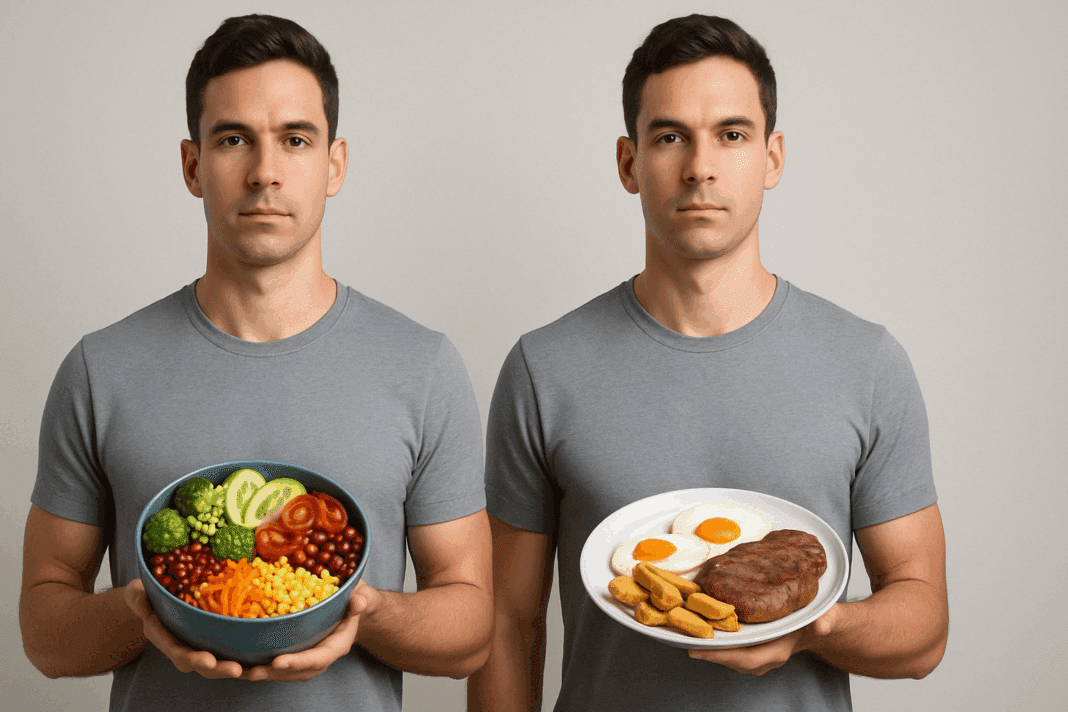In a world where diet trends come and go, scientific research remains the gold standard for understanding how nutrition truly affects our health. Among the most compelling new contributions to nutritional science is a groundbreaking twins diet study published in 2023, which compared the effects of a vegan diet versus an omnivorous diet in identical twins. This vegan twin study not only highlights the power of plant-based eating but also provides robust, real-world insights into how food choices can impact everything from cholesterol to biological aging. As the debate around diet quality intensifies, particularly with the popularity of the ketogenic diet vs low carb approaches, this study serves as a landmark moment in the dialogue around whole-food plant-based nutrition.
You may also like: Plant Based Diet vs Standard American Diet: What the Latest Studies Reveal About Long-Term Health Outcomes
Understanding the Science Behind the Vegan Twin Study
The vegan twin study conducted at Stanford University is one of the most methodologically rigorous nutrition trials in recent memory. What makes this twins vegan diet study unique is its design: it involved 22 pairs of genetically identical twins, with one twin in each pair following a strictly vegan diet and the other consuming an omnivorous diet with animal products. The intervention lasted eight weeks and focused on whole-food versions of both diets, eliminating ultra-processed foods for all participants. This approach controlled for genetic variability, lifestyle factors, and food quality—allowing researchers to isolate the effect of dietary pattern alone.
At the heart of this study lies the principle of epigenetics—the understanding that environmental factors, including diet, can influence gene expression without altering the genetic code itself. Because the twins were genetically identical, any differences in biomarkers such as cholesterol, insulin sensitivity, or inflammation could be confidently attributed to the dietary intervention. This distinction offers a new gold standard for evaluating diet efficacy and provides crucial insights into the nuances of whole-food plant-based nutrition.
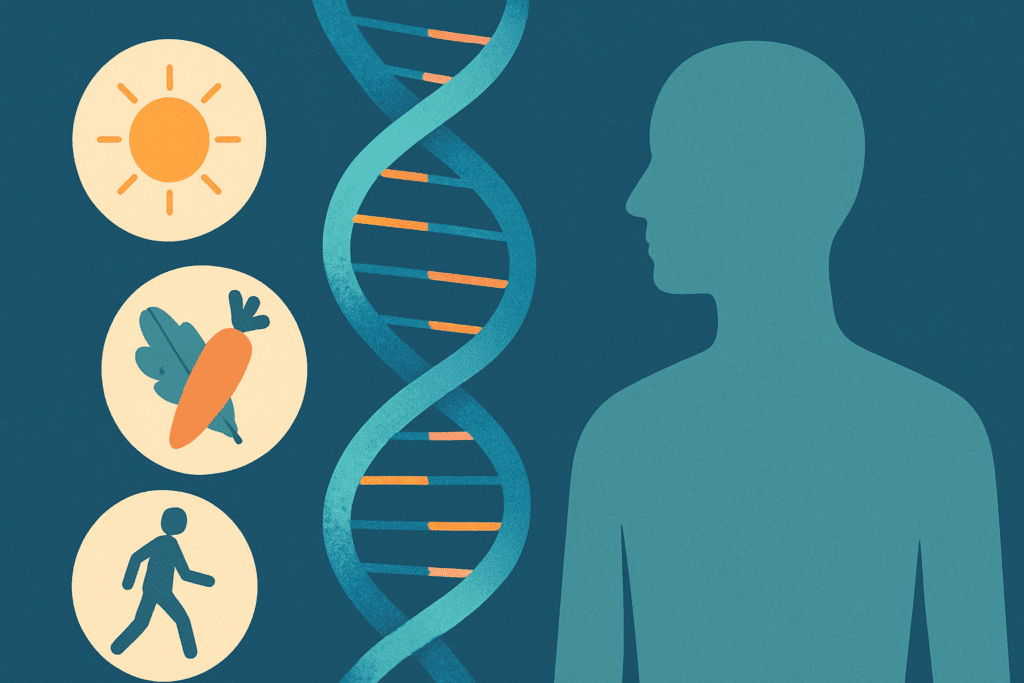
Surprising Results: What the Twins Diet Study Revealed
The results of the twins diet study were both surprising and illuminating. After just eight weeks, the twins on the vegan diet experienced significant improvements in multiple health metrics. Most notably, these participants had lower LDL cholesterol levels—often referred to as “bad” cholesterol—than their omnivorous counterparts. Additionally, markers of insulin sensitivity and inflammation also improved in the vegan group. These benefits were particularly striking given the relatively short duration of the trial.
Participants on the vegan diet also saw a slight reduction in body weight, despite being encouraged to eat freely and not restrict calories. This supports the growing body of evidence suggesting that whole-food plant-based diets can promote healthy weight loss without the need for calorie counting or portion control. While the ketogenic diet vs low carb approaches often focus on limiting carbohydrate intake to trigger fat loss, the vegan diet provided a contrast by emphasizing fiber-rich, high-volume foods that promote satiety naturally.
Moreover, the study found preliminary signals that a vegan diet might influence biological age markers. These include telomere length and DNA methylation patterns, which have been associated with aging and chronic disease risk. While more research is needed to confirm these findings, they add another compelling dimension to the argument for plant-based health.
The Role of Whole-Food Plant-Based Nutrition in Disease Prevention
One of the key takeaways from the twins vegan diet study is the power of whole-food plant-based nutrition to prevent chronic disease. Unlike many trendy diets that rely heavily on processed, packaged, or animal-based products, whole-food plant-based diets emphasize minimally processed fruits, vegetables, legumes, nuts, seeds, and whole grains. These foods are not only rich in essential nutrients but also low in saturated fat and free of dietary cholesterol.
Numerous observational and interventional studies have shown that diets high in plant foods are associated with lower risks of heart disease, type 2 diabetes, hypertension, and some cancers. The vegan twin study adds a new layer of scientific validation by showing that even a short-term dietary shift can lead to meaningful health improvements. In contrast, while the ketogenic diet vs low carb strategies may offer quick weight loss and glycemic control, they can often fall short in providing long-term cardiovascular benefits.
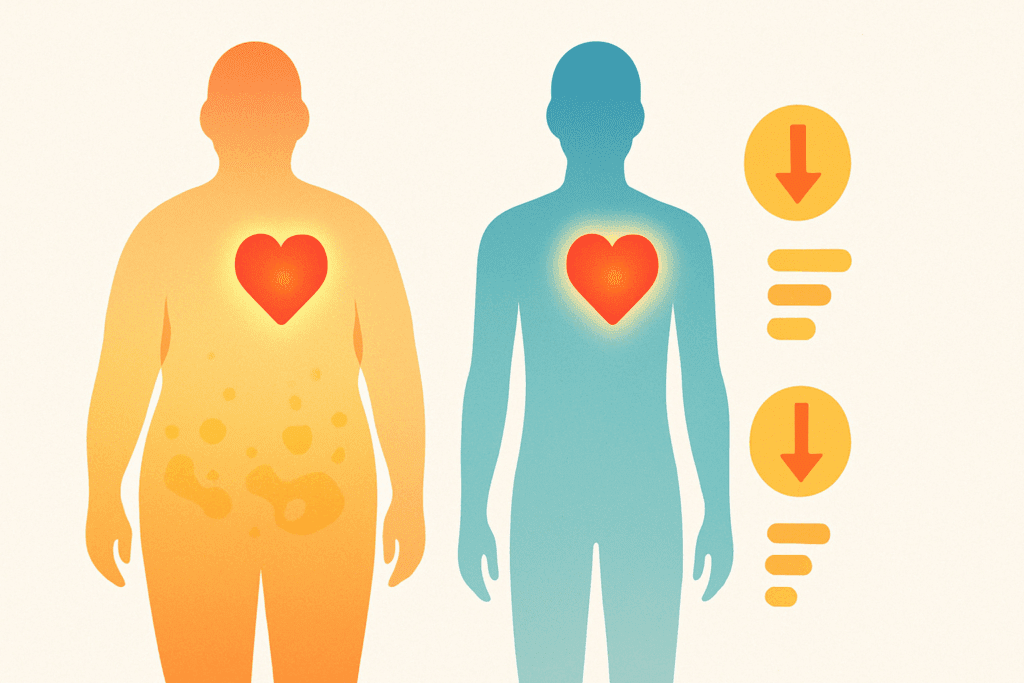
Is Keto a Good Diet Compared to Plant-Based Eating?
The question of whether the ketogenic diet is a good diet continues to be a subject of debate among nutrition experts. Advocates argue that keto’s high-fat, low-carb model is ideal for rapid weight loss and blood sugar management. However, critics point out that it often excludes nutrient-dense plant foods and may increase intake of saturated fats and red meat—factors associated with higher chronic disease risk.
From a scientific standpoint, is keto a low carb diet? Yes, by design, it is one of the most restrictive low-carb diets, typically allowing only 5-10% of calories from carbohydrates. This extreme carbohydrate restriction can lead to short-term weight loss through water loss and ketosis, but its long-term sustainability and health impact remain uncertain. Compared to the moderate approach of a low carb diet keto diet, the vegan diet emphasizes inclusion rather than exclusion—making it easier to maintain, nutritionally complete, and less likely to result in micronutrient deficiencies.
Is a Keto Diet Sustainable in the Long Run?
When considering whether a diet is sustainable, it’s essential to look at adherence, nutritional adequacy, and long-term health outcomes. Is a keto diet sustainable? For many individuals, the answer is no. While initial enthusiasm may lead to rapid adoption, the severe restrictions on carbohydrates and social limitations of eating keto can make it difficult to maintain over time.
By contrast, whole-food plant-based diets tend to be more flexible, inclusive, and culturally adaptable. People can enjoy a wide variety of flavors and cuisines without counting macros or eliminating entire food groups. Moreover, the vegan twin study showed that even within eight weeks, individuals on the plant-based plan experienced health benefits without drastic lifestyle upheaval. This highlights the potential for plant-based eating to offer a practical, sustainable alternative to the more rigid frameworks often seen in low carb diet keto diet plans.
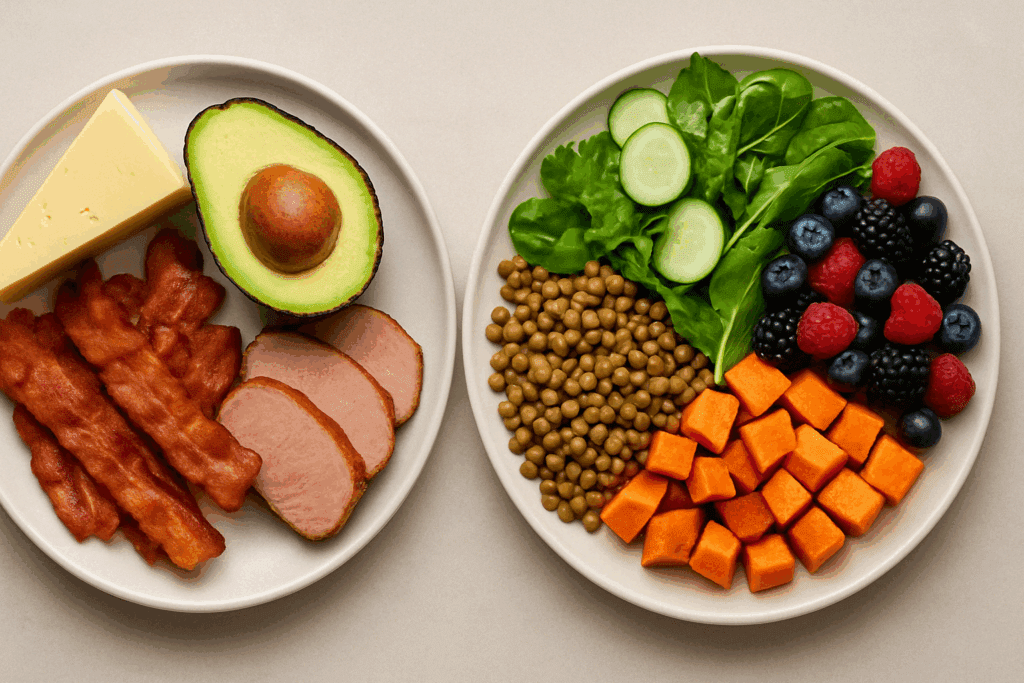
The Influence of Diet on Gut Health and Immunity
Emerging research underscores the critical role that diet plays in shaping the gut microbiome—a complex ecosystem of bacteria that influence digestion, immune function, and even mental health. High-fiber diets rich in whole plant foods feed beneficial gut bacteria, resulting in the production of short-chain fatty acids (SCFAs) that have anti-inflammatory and immune-modulating effects.
In contrast, ketogenic and low-carb diets often lack sufficient fiber to support a diverse and healthy microbiome. This raises important concerns, especially when considering the long-term impact of such diets on immune function and systemic inflammation. The twins vegan diet study did not specifically measure microbiome changes, but prior studies suggest that the fiber-rich nature of plant-based diets contributes positively to gut health.
Reframing the Debate: Keto Diet vs Low Carb Diet
When comparing the keto diet vs low carb diet, it’s important to recognize that these terms are not interchangeable. While both involve reducing carbohydrate intake, the degree of restriction and the sources of macronutrients differ significantly. A low-carb diet typically allows more carbohydrates and often includes more fruits, vegetables, and whole grains than the stricter ketogenic model. This makes the low-carb diet a more moderate and potentially sustainable approach.
However, both models frequently lack the abundance of phytonutrients, antioxidants, and fiber found in plant-based diets. The vegan twin study highlights how shifting the dietary focus away from restriction and toward nutrient density can yield significant health improvements. Instead of framing the discussion as keto vs low carb, it may be more productive to explore how plant-based eating compares to both in terms of health outcomes, sustainability, and ease of adoption.
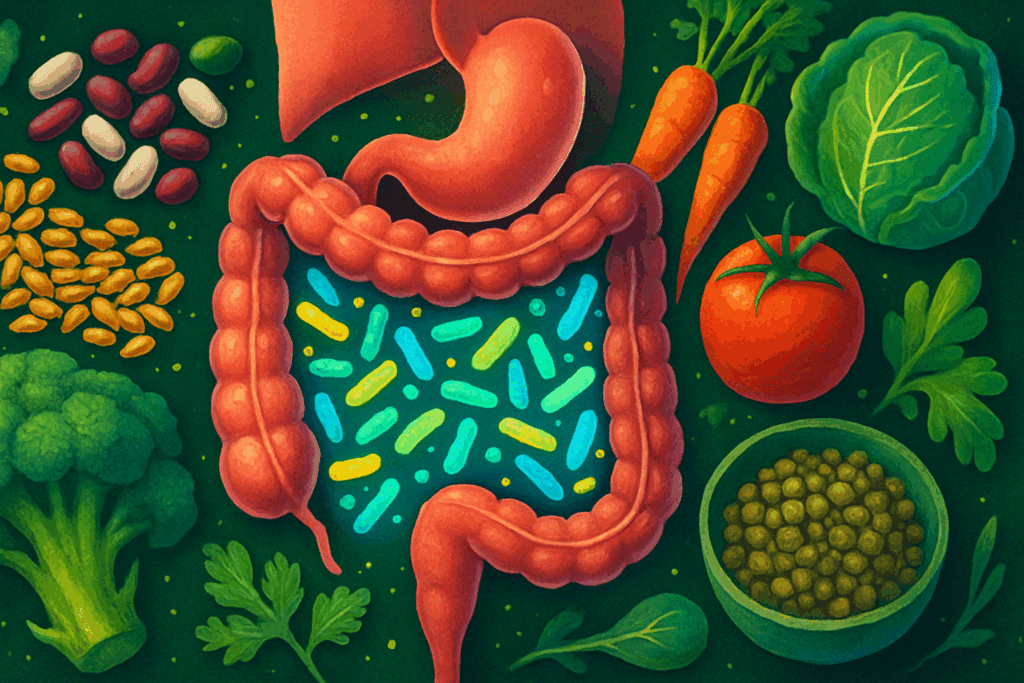
Vegan Diets and Metabolic Health: Beyond Weight Loss
Weight loss is often the most visible marker of dietary success, but metabolic health encompasses much more. The vegan twin study revealed improvements in insulin sensitivity—a critical factor in reducing risk for type 2 diabetes. It also showed reduced markers of inflammation, which play a role in virtually every chronic disease, from arthritis to cardiovascular disease.
These findings suggest that plant-based diets can improve internal health even in individuals of normal weight. This is a crucial insight, especially in an era when thinness is often equated with health. The results make a strong case for evaluating diets not only by how many pounds are lost, but also by how they affect long-term disease risk, energy levels, and quality of life.
The Environmental Argument: Sustainability Beyond Health
While the twins vegan diet study focused on health outcomes, the implications for sustainability are equally noteworthy. Animal agriculture is a leading contributor to greenhouse gas emissions, deforestation, and water pollution. Transitioning to plant-based diets could substantially reduce our environmental footprint while simultaneously improving public health.
Is a keto diet sustainable from an environmental perspective? Not typically. Diets high in animal-based proteins, particularly red meat, require far more resources to produce than plant-based foods. This adds another layer of complexity to the question: is keto a good diet if its environmental cost is taken into account? From a planetary health standpoint, plant-based diets clearly offer a more sustainable path forward.
What This Means for the Future of Dietary Guidelines
The findings from the vegan twin study may have lasting implications for how we approach public health recommendations. As more people seek clarity in the keto diet vs low carb debate, this study presents a compelling argument for plant-forward nutrition. It supports a shift in dietary guidelines toward evidence-based, whole-food, plant-rich patterns that prioritize long-term health and sustainability.
Nutrition professionals may begin to recommend plant-based diets not only for disease prevention, but also for managing existing conditions such as hypertension, high cholesterol, and insulin resistance. The ability of such diets to deliver results without extreme restriction makes them accessible and empowering for a broader range of individuals.
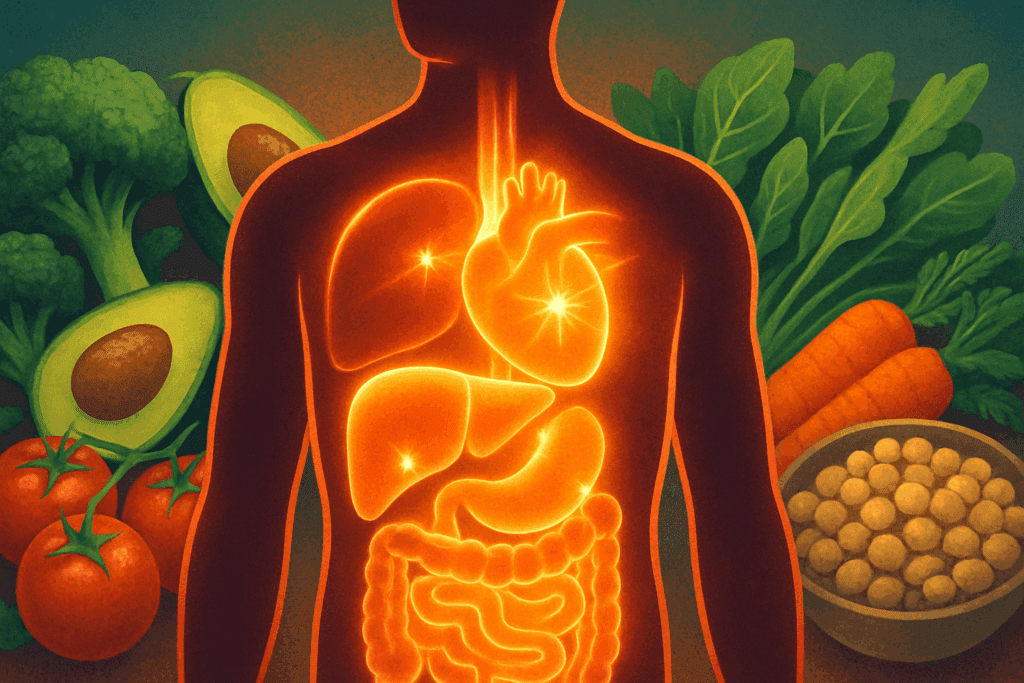
Frequently Asked Questions: Insights from the Vegan Twin Study
1. What new information does the vegan twin study add about different forms of vegetarianism?
The vegan twin study enriches our understanding of how different forms of vegetarianism affecthealth by providing high-quality evidence on whole-food, plant-based eating. While most comparisons between different vegetarian types have been observational, this study uses a controlled, twin-based design to isolate diet effects from genetic factors. This level of detail is rare in nutrition science. It also provides an opportunity to reflect on how different vegetarians—from lacto-ovo vegetarians to flexitarians—might benefit similarly, depending on the quality of their plant-based choices. Understanding these nuances helps clarify the impact of various types of vegetarians on health outcomes, offering more than just a one-size-fits-all view of plant-based diets.
2. How does this study influence how we define vegetarianism in the modern context?
The traditional attempt to define vegetarianism as merely abstaining from meat has evolvedsignificantly, and this study adds depth to that evolution. Today, defining a true vegetarian is less about rigid food exclusions and more about the nutritional profile and diversity of plant-based foods consumed. With growing awareness of the different levels of vegetarianism—including vegans, pescatarians, and reducetarians—this research supports the need to assess diet quality rather than labels alone. The study’s findings show that a high-quality vegan diet focused on whole foods offers superior benefits compared to less mindful approaches. In this way, the research reframes what it means to be a true vegetarian in terms of health outcomes rather than identity.
3. Can we apply these results to other types of vegetarians beyond strict vegans?
Absolutely. Although the study specifically examined vegans, many of the benefits observed—likereduced LDL cholesterol and improved insulin sensitivity—are also achievable with other forms of vegetarianism. For instance, lacto-ovo vegetarians who consume eggs and dairy can still adopt the principles of whole-food eating. Similarly, people exploring different kinds of vegetarians often benefit most when they minimize processed foods, regardless of their category of vegetarian. What’s important here is the plant-forward emphasis—something that transcends the different forms of vegetarian. This means that a pescatarian or flexitarian can still experience meaningful health improvements by increasing the variety and density of their plant intake.
4. How does this research affect how we talk about different levels of vegetarianism?
The vegan twin study invites a more nuanced understanding of the different levels of vegetarianism.Instead of lumping all plant-based eaters into a single category, it encourages a closer look at how dietary quality changes across different vegetarian types. For example, a person identifying as a flexitarian—someone who occasionally eats meat—may experience fewer benefits than a true vegetarian who consistently consumes nutrient-dense, whole plant foods. But if the flexitarian is making conscious, plant-centric choices, they might still see results similar to more restrictive diets. Thus, this research helps underscore that the health impact of the different kinds of vegetarians isn’t binary but exists on a spectrum influenced by food quality and consistency.
5. Why are people vegetarian, and does this motivation affect the health outcomes?
People choose vegetarianism for various reasons, including ethical concerns, environmentalsustainability, religious beliefs, and health. The motivation behind why people are vegetarian may influence their level of dietary adherence and food selection, which in turn affects health outcomes. For example, someone who becomes a vegetarian primarily for animal welfare might still rely heavily on processed meat substitutes, whereas someone motivated by health may prioritize whole foods. This highlights the value of looking at the different forms of vegetarianism not just as dietary patterns, but as lifestyle frameworks that shape long-term wellness. The vegan twin study strengthens this point by showing that health outcomes improve most when the motivation aligns with a nutrient-rich, whole-food approach.
6. How does this study reshape the idea of a true vegetarian?
The concept of a true vegetarian often gets reduced to a binary choice: meat or no meat. However,the vegan twin study pushes us to rethink this label through the lens of diet quality and health outcomes. A true vegetarian, based on these findings, might be more accurately described as someone who commits to a plant-based lifestyle rooted in whole, unprocessed foods. When examining different vegetarian types, it’s clear that labels can be misleading if they don’t reflect the actual food choices being made. This research challenges surface-level identifiers and calls for a broader discussion about what different forms of vegetarian really mean in terms of impact.
7. Are all various types of vegetarians equally beneficial to health?
Not necessarily. While adopting a plant-based diet can be beneficial, the degree to which it improveshealth depends heavily on the food quality and consistency. Among the various types of vegetarians, some may consume more refined carbohydrates, oils, or processed faux meats, which can diminish health benefits. Others, like those who align more with whole-food veganism, tend to consume higher levels of fiber, antioxidants, and essential micronutrients. This illustrates how the different forms of vegetarianism can yield very different results. To gain the most from any category of vegetarian, it’s essential to focus not just on what’s excluded, but on what’s included and how often.
8. What social and psychological aspects of vegetarianism are revealed by this research?
While the twin study didn’t directly examine social psychology, its implications extend into this realm.Choosing among the different forms of vegetarian often involves navigating cultural norms, family traditions, and social dining situations. People new to the lifestyle may feel overwhelmed by the many different vegetarian types and how they fit into their personal lives. The clarity of the study’s health outcomes provides a reassuring foundation for those exploring vegetarianism for the first time. It also shows that even small shifts—like reducing processed food intake or experimenting with meatless days—can bridge the gap between different kinds of vegetarians and true vegetarian health benefits.
9. How does this research help distinguish between different vegetarians and their long-term health prospects?
By measuring biological markers such as LDL cholesterol, insulin sensitivity, and inflammatoryprofiles, the vegan twin study offers concrete data that help distinguish between different vegetarians in terms of health impact. Someone adhering to a processed vegetarian diet may see fewer benefits compared to those following a clean, whole-food approach. This helps clarify the spectrum within different levels of vegetarianism and underscores the need to think beyond dietary labels. As more people explore the many different vegetarian types, this kind of data can guide personalized dietary choices that align with long-term health goals. In essence, it adds scientific rigor to what was once a mostly ideological conversation.
10. What does vegetarian mean for future nutrition research and guidelines?
The question of what does vegetarian mean in the future will likely be reframed by studies like thisone. As we gather more data on how different forms of vegetarianism affect health, environmental sustainability, and even mental well-being, nutrition guidelines will evolve accordingly. Defining a true vegetarian may come to include not only food exclusions but also values such as sustainability, food quality, and accessibility. The current research points toward a future where various types of vegetarians are evaluated more holistically, taking into account nutrient density, lifestyle fit, and public health goals. This evolving definition will ensure that different kinds of vegetarians—regardless of category—are supported in making science-informed, practical choices for lifelong wellness.

Final Thoughts: Why the Vegan Twin Study Is a Game Changer
In the ever-evolving world of nutrition science, the vegan twin study stands out for its clarity, precision, and real-world relevance. By controlling for genetic variability and focusing on whole, minimally processed foods, it offers a rare glimpse into how diet alone can transform health from the inside out. It challenges the assumptions underlying popular approaches like the low carb diet keto diet and raises important questions about the sustainability and long-term effects of extreme dietary models.
Whether you’re exploring the nuances of the ketogenic diet vs low carb or simply asking, “Is keto a low carb diet that works for me?”, this landmark study invites all of us to reimagine what healthful eating can look like. Grounded in science and guided by real human experience, it makes a powerful case for the health benefits of a vegan diet—one supported by nature, validated by research, and increasingly embraced by the medical community.
As the conversation continues to evolve, the insights from this twins diet study remind us that food is not just fuel—it’s medicine, communication, and connection. And when it comes to our health, the choices we make today can shape our future in profound and measurable ways.
Was this article helpful? Don’t let it stop with you. Share it right now with someone who needs to see it—whether it’s a friend, a colleague, or your whole network. And if staying ahead on this topic matters to you, subscribe to this publication for the most up-to-date information. You’ll get the latest insights delivered straight to you—no searching, no missing out.
Further Reading:
Vegan vs. meat: Twin brothers’ six-month experiment reveals which diet packs more vitamins
Meat diet vs vegan diet: Twin’s experiment uncovers ‘shocking results’
Twin research indicates that a vegan diet improves cardiovascular health
Disclaimer
The information contained in this article is provided for general informational purposes only and is not intended to serve as medical, legal, or professional advice. While NewsHealthWatch strives to present accurate, up-to-date, and reliable content, no warranty or guarantee, expressed or implied, is made regarding the completeness, accuracy, or adequacy of the information provided. Readers are strongly advised to seek the guidance of a qualified healthcare provider or other relevant professionals before acting on any information contained in this article. NewsHealthWatch, its authors, editors, and contributors expressly disclaim any liability for any damages, losses, or consequences arising directly or indirectly from the use, interpretation, or reliance on any information presented herein. The views and opinions expressed in this article are those of the author(s) and do not necessarily reflect the official policies or positions of NewsHealthWatch.

